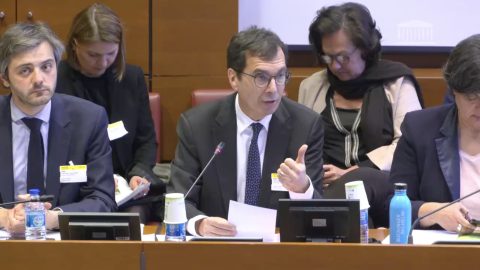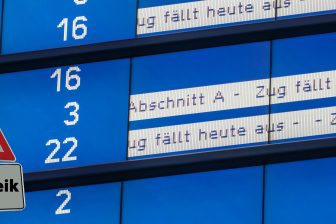
A good first half of 2023 for France’s SNCF Group
Jean-Pierre Farandou, CEO of the SNCF, speaking to the Finance Committee on 12 April 2023 (Screenshot, National Assembly) National Assembly (FR)
The SNCF Group’s turnover came to 20.7 billion euros in the first half of 2023, marking an increase of 2.2 per cent over 2022. Cash flow is positive, and debt is being reduced. Sales are up thanks, in particular, to SNCF Voyageurs, TGV, and Kéolis, while the group continues to invest in new projects.
Want to read more?
You have read all of your free premium articles for this month. Please become a subscriber to keep reading.
Subscribe now!
Take advantage of our exclusive offer to get full access to all premium content.



